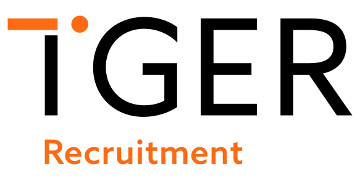Their background was in interactive technology and performance and didn’t tick many of our ‘typical’ boxes. But their skills set brought possibilities, something exciting, the potential to bring a different perspective to our work, making us more open-minded.
It helped us build credibility with clients in new areas, enabled us to connect with experts in other industries and reach out to audiences through imaginative methods.
Pushing through discomfort:
Keeping diversity on the agenda during tough times
Diversity and inclusion remains CEO’s top priority in pandemic
HR profession still lacking diversity
If something does not quite ‘fit’, we fret over chemistry, we fear confrontation and we feel uncomfortable. But if our experience has taught us anything, it’s that being open to difference, and working alongside those new to the industry can bring an alternative – and often fresher way of thinking to the table.
Part of the discomfort is also in talking and writing about it, in being transparent about our own challenges and limitations. Being vulnerable and acknowledging this are keys to authentic change.
This has helped us take a much-needed, more holistic view towards diversity, equity and inclusion (DEI), defining this not only in terms of gender, race or background, but also by looking at how people’s individual circumstances and life experiences can enrich our community and our business.
We recently produced an experience in-house featuring interactive video technology, something we may not have previously contemplated, but having brought some really ambitious, talented people into our content team, we had the confidence to deliver and create a really compelling (and award- winning) piece of work.
It’s shown us the heights we can reach by being uncomfortable. This idea of embracing discomfort is reinforced in our latest brand vision, 'Never Normal’, where we highlight that talent isn’t only about skills and experience, but also about the human beings we recruit and nurture, and how they bring diverse backgrounds as well as interesting, varied life experiences.
The next step is to focus on being truly inclusive and equitable.
As an industry, we are beginning to see positive progress with regards to gender, representation and race, but a further challenge is how to achieve meaningful change and inclusivity with regards to other topics: mental health, neurodiversity, disabled people. This can require a different approach that is more nuanced and fundamental - a culture that is truly accepting and more open minded.
With this comes the risk of trying for too much on too many fronts, resulting in very little meaningful change.
To address this, we believe it’s right for an agency of our size and means to focus on key areas our team believe will make the biggest impact to our community and culture.
We are focusing on making progress with fewer, rather than too many issues and tackling those to the absolute best of our ability to show meaningful progress in key areas.
In the last year, 15% of our new recruits came from Asian, black, African or Caribbean backgrounds, increasing our percentage of employees from under-represented areas from 7% to 12%. We’ve maintained female representation in our business at 50% and increased female representation in our leadership group to 33%.
As we bring in new people, we have a set of shared values embodied by our business: being professional and kind to each other or being accountable, and these are non-negotiable. Outside of that, everyone is welcome. And the more variety we have, the better we can be as a company, as humans and as citizens of the world.
Ultimately any DEI approach needs to go far beyond the business; it has to matter not just internally but externally too. For our team and our clients, it’s critical that steps taken are credible and authentic, and backed up by data.
In 2021, we carried out an audit among our suppliers, asking them to share their stats and policies. We may well get to the uncomfortable point where we have to choose one over another, depending on their DEI approach.
Dominic Thomas‑Smith, managing director at Smyle
If you have a pressing D&I problem you can't get to the bottom of, send in your query to be answered by our resident D&I specialist Huma Qazi in the next issue of HR magazine.










